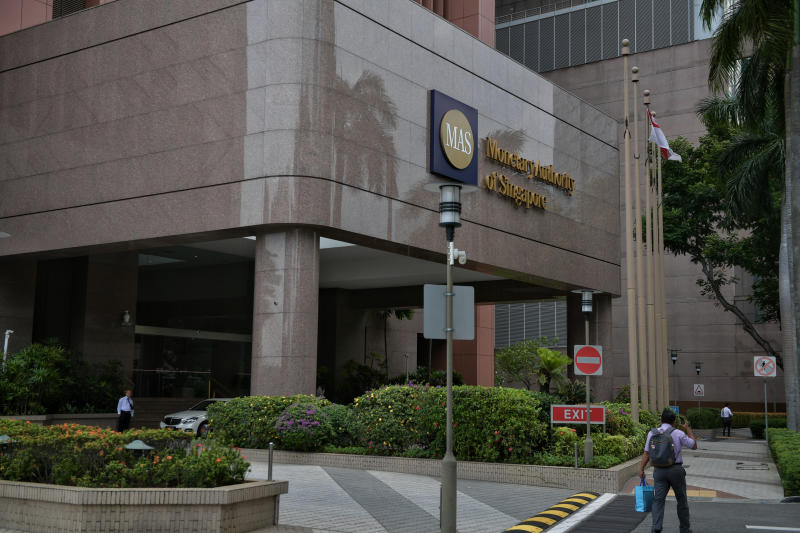MAS set for aggressive action come Monday: What to expect
Sign up now: Get ST's newsletters delivered to your inbox

The Monetary Authority of Singapore has refrained from following global central banks in delivering emergency action in recent weeks, but moved up its meeting to March 30, 2020.
PHOTO: ST FILE
Follow topic:
SINGAPORE (BLOOMBERG) - Singapore's central bankers are poised to take unprecedented action on Monday (March 30) to bolster financial markets and support an economy facing a severe recession.
The Monetary Authority of Singapore, which uses the currency as its main policy tool rather than interest rates, will probably take unusually aggressive action of two moves, according to economists surveyed by Bloomberg.
All 11 in the poll see the MAS reducing the slope of its currency band to zero and re-centering the band downwards.
The last time the central bank lowered the band's center was during the global financial crisis in 2009.
The MAS - which decides policy twice a year, typically meeting in April and October - has refrained from following global central banks in delivering emergency action in recent weeks, but moved up its meeting to Monday.
Economic conditions have worsened considerably this month as the coronavirus outbreak spreads widely, with Singapore's government on Thursday projecting a contraction in gross domestic product this year of 1 per cent to 4 per cent.
Finance Minister Heng Swee Keat allocated an additional $48 billion in virus relief in a supplementary budget, boosting the city's total stimulus this year to 11 per cent of GDP.
Here's a look at what's expected in the central bank's statement on Monday:
POLICY BAND
The MAS guides the local dollar against a basket of currencies and adjusts the pace of appreciation or depreciation by changing the slope, width and center of a currency band. It doesn't disclose details of the basket, the band or the pace of appreciation or depreciation.
The MAS has never re-centered the band and shifted the slope to zero appreciation at the same meeting, according to Mitul Kotecha, senior emerging markets strategist at TD Securities in Singapore.
"These are, however, unprecedented times, the extent of the shock calling for more drastic action," he said.
INFLATION OUTLOOK
A more drastic move than normal would be justified by lower consumer price inflation in January and February, a weaker oil-price trajectory, and softening domestic cost pressures, according to Citigroup economists Wei Zheng Kit and Kai Wei Ang.
Consumer-price growth eased to 0.3 per cent in February, while the core measure declined for the first time since 2010.
As core inflation is likely to remain in contraction in year-on-year terms in 2020, a re-centering of the currency band is likely, Sin Beng Ong, an analyst at JPMorgan Chase Bank in Singapore, wrote in a March 24 research note.

